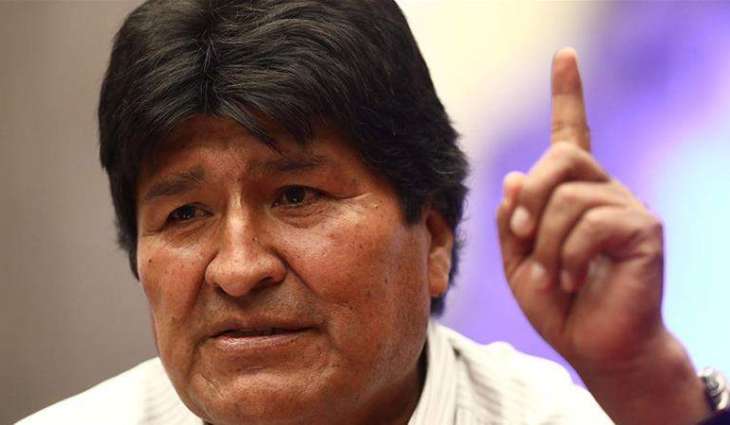Coronavirus-related control measures implemented by the current government in Bolivia are full of double standards, allowing exceptions for privileged politicians, and are excessively harsh for ordinary citizens, ousted Bolivian leader Evo Morales said in an interview with Sputnik Radio
MOSCOW (Pakistan Point News / Sputnik - 05th May, 2020) Coronavirus-related control measures implemented by the current government in Bolivia are full of double standards, allowing exceptions for privileged politicians, and are excessively harsh for ordinary citizens, ousted Bolivian leader Evo Morales said in an interview with Sputnik Radio.
Morales is currently exiled in Argentina.
"[Bolivia] is the only country where the pandemic is being fought with tear gas, rifles and tanks. Repression, extortion and arrests continue," Morales said.
At the same time, not much has changed for those in power, as "the authorities and their families still have tourism and birthday celebrations, while ordinary people do not have even food," the ex-president added.
This shows the double standard approach that the incumbent Bolivian government practices in enforcing the COVID-19 quarantine, according to Morales, who cited as an example the daughters of interim President Jeanine Anez violating the lockdown several days ago.
"There are two pandemics in Bolivia: on the one hand, the coronavirus, which kills with diseases, and, on the other hand, the dictatorship, which kills us with hunger. This pandemic has paralyzed production, while the dictatorial government with its corruption and nepotism has paralyzed the state-owned companies," Morales said, adding that "We are in a bad economic situation."
He cited an example of Anez' government shutting a plant in the central Bolivian city of Cochabamba four months ago which resulted in an estimated loss of $30 million in profits and the loss of the Brazilian market.
According to Morales, in order to effectively fight the coronavirus pandemic and also improve the economic situation, Bolivia needs a government that has recognition among people and has been elected via a democratic vote.
Last October, Morales claimed controversial victory in an election that would have launched his fourth consecutive presidential term, which caused an uproar among the opposition and triggered violent protests across the nation. Morales was pressured by the military to step down and flee the country, eventually settling in Argentina.
Opposition lawmaker Jeanine Anez has since taken over as interim president, pledging to hold a snap presidential election and bar Morales from running in it.




